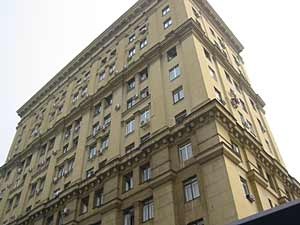A recent report by a Moscow-based environmental watchdog has cast into doubt claims by Rosatom, Russia’s state nuclear corporation, that it has over $130 billion in nuclear reactor construction projects ongoing in foreign countries.
A recent report by a Moscow-based environmental watchdog has cast into doubt claims by Rosatom, Russia’s state nuclear corporation, that it has over $130 billion in nuclear reactor construction projects ongoing in foreign countries.
According to the analysis by Ecodefense, the amount of income Rosatom can claim from its overseas projects is likely closer to $90 billion – a $40 billion shortfall that could leave Russian beleaguered pensioners on the hook for financing the difference.
The report could prove to be an embarrassing revelation. Rostom has long made a point of emphasizing the size of its international portfolio to justify the billions of dollars in Russian state subsidies that it receives.
These state subsidies have recently come under question from various quarters, and some Russian politicians have suggested that government underwriting of the nuclear company should be phased out over the next few years.
In the meantime, the Ecodefense report illustrates that if Rosatom’s overseas construction fails to bring the promised dividends, the state company may be forced to raid the National Wealth Fund, a government savings account that pays Russia’s pensions, to stay solvent.
At present, says the report, the company is financing most of its international portfolio with cheap, easy-to-get loans that are overwhelmingly concentrated in developing countries – which may have trouble paying them back.
At the root of the trouble, says the Ecodefense report, is the fact that Rosatom has misstated, both on its website and in other publicly available documents, the number of reactors it is actually building abroad.
“Rosatom says it is building 36 new units, but the reality is a bit different,” said Vladimir Slivyak, the group’s co-chairperson. “Only seven Russian reactors are presently under active construction.”
To arrive at that conclusion, Ecodefense conducted an audit of Rosatom’s website and other publicly available documents, like press releases, annual reports and statements. Taken together, these documents purport to show the total income Rosatom can claim from overseas reactor construction and other nuclear services, like fuel reprocessing and uranium enrichment.
However, over the the course of three years, the report shows, the Rosatom documents begin to paint a conflicting picture or what was being built where, and what the value of those projects were.
Rosatom’s annual report of 2017, for instance, claimed the company was building 36 reactors in 11 different countries, putting the total order of the company’s overseas orders at $133.5 billion. As of 2018, Rosatom’s website said the value of the company’s overseas orders was the same, but the website version of events claimed the company was only building reactors in 35 countries.
Further, an examination of publicly available Rosatom financial tables from the same year show that the total value of reactor construction contracts the company had with foreign countries only amounted to $97 billion. From this, Ecodefense was able to conclude that the number of reactors Rosatom was, in fact, building abroad was fewer than it claimed.
As the estimated market cost for commercial reactors hovers between $5 billion and $7 billion, the $97 billion figure on the company website couldn’t account for more than about 20 reactors.
The Ecodefense report says that the disparity between the number of reactors the company says its building and the ones its website claims income for could be chalked up the fact that Rosatom is only the partner on many overseas reactor projects, rather than the primary contractor.
Overall, however, the report concludes that reconciling the $97 listed as Rosatom’s income for reactor construction with the number of foreign reactors the company is known to be building is extremely difficult, and would require Russia access to data that is not in the public domain.
Still, a number of projects Rosatom counts towards its income figures are questionable. One $5 billion item that Rosatom lists as income, for instance, is a reactor construction project in Armenia. But that project, which was supposed to kick off in 2013, has never materialized. A similar project for $10 billion in Jordan was cancelled by Jordanian authorities, but still appears as income on Rosatom financial reports.
And, although the cancellation of a nuclear power plant in Nigera was well publicized by both Rosatom and Nigerian officials, the plant still appears on a map of ongoing projects that Rosatom features on its website.
Several other reactor projects that Rosatom’s public documents claim it is building are not yet backed up by any legally binding documents with their customers.
What’s more, says the group’s report, the majority of these projects are financed by Russian state loans, offered to the countries where the reactors are being built at rates that are vastly lower than those offered by commercial banks. In most cases, Russia is collecting a mere three percent on the billions it puts on offer for its customers.
But even collecting that, the report asserts, is a dicey proposition. Many developing countries to which Rosatom has extended loans are saddled with substandard credit ratings, which indicate they could default.




